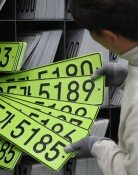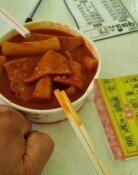How a secret group sends a letter to N. Korea in 2 days
How a secret group sends a letter to N. Korea in 2 days
Posted October. 22, 2011 02:50,
A secret group arranges reunions of separated families in South and North Korea. Reunions are generally made by bringing North Koreans across the North`s border with China for meetings with their South Korean relatives, who wait for them there.
In these cases, the North Koreans reportedly cross the border by promising to "return to the North without fail." The group also on rare occasion helps South Korean prisoners of war and North Koreans seeking to defect to flee the country.
The leader of the group, identified only by his surname Shim, said, At one point, there were as many as 12 scattered sub-organizations under our council, but the number of civilian exchanges has recently plunged. Now only six sub-organizations are operating with some 30 to 40 agents.
Since its establishment in 1998, the council has held civilian exchanges between the Koreas behind the scenes, including exchange of correspondence, confirming the fates and whereabouts of separated families, and their reunions. Such matters the beyond the ability of Seoul and Pyongyang.
According to South Korean national security authorities, Shim has helped arranged as many as 33 reunions of separated families for more than 10 years.
○ Family letter conveyed in just days
Showing a Dong-A Ilbo reporter a letter that came from North Korea recently, Shim and another person said, The time required for delivery differs depending on the weight and size of a product or the location of a sender, but this letter was delivered just in two days.
The letter was taken out from a drawer and clearly showed letters reading October 9, Juche (self-reliance) 100th year. The council was tightlipped about the location of the sender because it "could face difficulties operating in the North."
This is how the letter was delivered. A nephew in the North wrote it to his uncle, or his father`s elder brother, in the South on Oct. 9 and handed it to an agent active in the North`s Pyongan provinces. The agent handed it over by paying 150 yuan (23 U.S. dollars) to a truck driver who headed to the North Korea-China border, thus forwarding it to the border region.
They chose the truck because the agent would get easily caught if he goes to the border area with the letter. Alternatively, the letter can be entrusted to a fishing boat that fishes in the border area.
The truck driver met an agent near the North Korean border waiting in a pre-arranged venue, and handed over the letter. The agent called another agent working on the Chinese side of the border over a mobile phone, and fixed the venue for their appointment. These agents in the border region mostly use mobile phones opened for subscription in China.
To dodge signal tracking by North Korean authorities and the watchful eyes of North Korean soldiers, the agents limit calls to just one or two minutes per call. They call at open sites where they can check all directions and stay near bodies of water because they need to immediately throw the phone away if caught by the North Korean State Security Department.
The agents in the border area, who fix the time and venue for meetings via mobile phone, meet at sites around the Tumen River, which has a narrow width and where North Korean soldiers are not closely guarding. A North Korean agent transferred the letter by tying it on a stone and throwing it across the river.
Upon receiving the letter, the agent on the Chinese side scanned it and converted into a file, then sent the file to an agent in South Korea via email. The family in the South checked the letter sent on Oct. 9 via email two days later, which means two days was all it took for the letter to reach the recipient in the South.
The original letters are often conveyed by international priority mail, which generally takes about four to seven days to be delivered. It costs about 500,000 South Korean won (435 U.S. dollars) to send and receive a letter.
The secret group is now seeking to advertise civilian exchanges that were conducted in secret. It plans to place ads in newspapers read by separated families and North Korean defectors, including Ibuk Odo (a newspaper covering 5 North Korean provinces), the Tongil (Unification) Newspaper, and the Hamnam (South Hamgyeong Province) Daily.
They used to target separated families who got mailing addresses through inter-Korean family reunions arranged by the government, but have not exchanged correspondence since.
According to the ad, a package of up to 20 kilograms including living necessities and medicine can be delivered within a maximum of 75 days. The cost is 500,000 won per case.
Headline News
- N. Korea launches cyberattacks on S. Korea's defense companies
- Major university hospital professors consider a day off each week
- Italy suffers from fiscal deficits from ‘Super Bonus’ scheme
- Inter Milan secures 20th Serie A title, surpassing AC Milan
- Ruling and opposition prioritize spending amid tax revenue shortfalls







